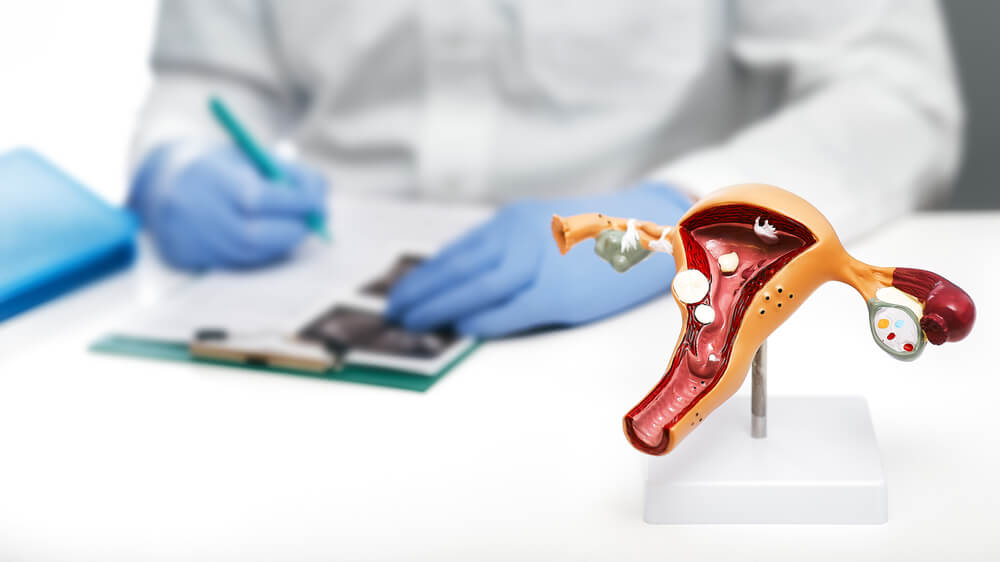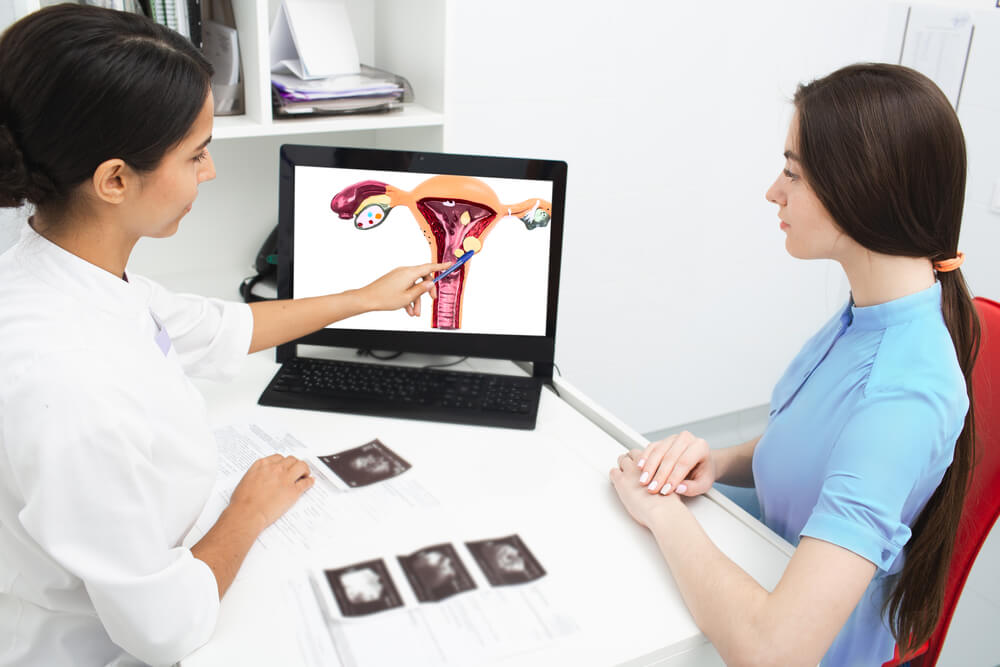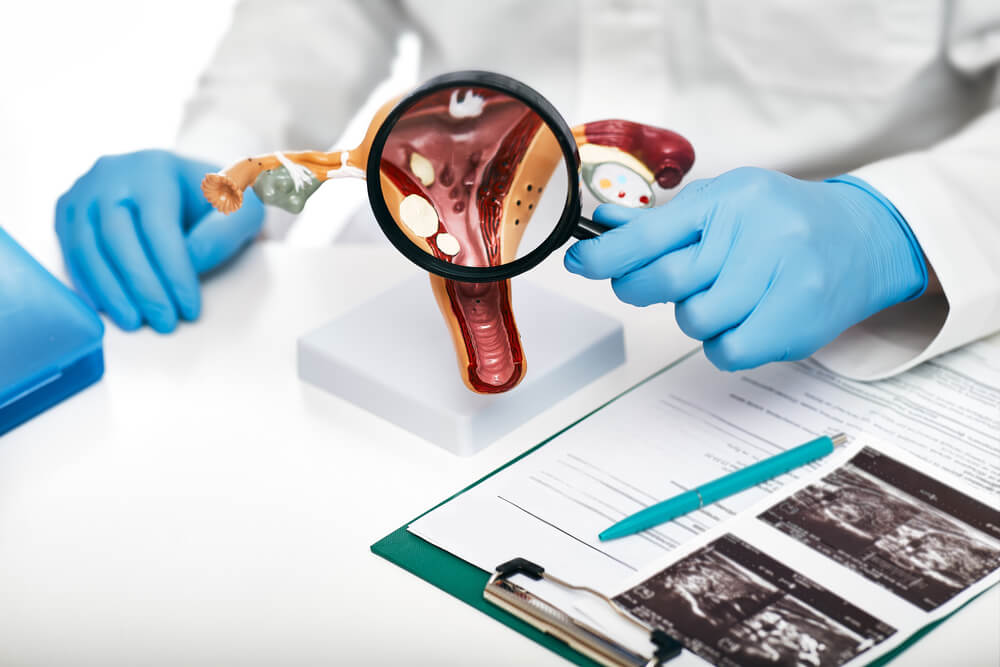Even though uterine polyps are typically harmless, they can possibly turn into cancer. Educate yourself about the different signs and symptoms of this medical condition and seek out professional help. Learn about the best treatment methods and the recovery process for improved chances of fertility, less painful menstrual periods, and overall better life quality. We have compiled some of the most critical facts about uterine polyps, including the symptoms, risk factors, diagnosis, possible treatment options, and more. When in doubt, talk to a professional for expert evaluation. We recommend consulting with Gynecology Care in Palm Beach, FL, the best in the area.
With that in mind, what are polyps in the uterus, and do you have any cause for concern? Get your questions answered below.
What are Uterine Polyps?
The growths attached to the inner uterus walls that extend into the cavity of the uterus are referred to as uterine polyps. The formation of the polyps happens due to cell overgrowth in the uterus lining (or the endometrium). These growths are endometrial polyps. Usually, uterine polyps are benign or noncancerous, but they can be dangerous. In some cases, the polyps can be cancerous or turn into precancerous polyps.
These growths range in size. Uterine polyps can be a few millimeters in size (around the same size as a sesame seed), or they can be several centimeters large (such as a golf ball or bigger). These growths are attached to the wall of the uterus via a thin stalk or a large base.
Patients can have one or more polyps in the uterus. Typically, polyps remain contained within the uterus, but in some instances, they can potentially slip down via the cervix (the uterine opening) into the vagina. As mentioned, in most cases, an endometrial polyp is not cancerous, and it does not turn into cancer. However, they can cause issues with menstruation, or they can affect a woman’s ability to conceive (fertility complications). If you or a loved one suspect uterine polyps, consult with professionals for expert diagnosis and treatment. We recommend consulting with experts at Comprehensive OBGYN of the Palm Beaches, the best medical professionals in the field.
The Most Common Uterine Polyps Symptoms

The uterine polyps symptoms will vary from one individual to the next, so take the following list with a grain of salt. That said, some signs are typical of this condition. These include:
- Vaginal bleeding post-menopause
- Irregular menstrual cycles (for instance, having unpredictable and frequent menstruations of variable heaviness and length)
- Excessively heavy (and often painful) menstrual cycles
- Bleeding between periods (spotting)
- Infertility
Most women deal with uterine polyps symptoms related to their menstrual periods. For instance, many women with this condition have unpredictable and irregular menstruation. Healthy women typically have menstrual cycles that last for up to seven days. A patient with polyps in the uterus will have a period every 28 days, even though a normal cycle ranges from 21 to 35 days. It is estimated that around 50 percent of women with this condition experience irregular menstrual cycles.
Some other uterine polyps symptoms include excessive or prolonged menstrual bleeding or menorrhagia. This term refers to bleeding between menstruations and bleeding post-sexual intercourse or after menopause. About 25 percent of patients with polyps in the uterus experience abnormal bleeding. If you have problems getting pregnant or carrying a pregnancy, you may also be dealing with uterine polyps.
What Causes Polyps in the Uterus?
Why do polyps form? Experts are still unsure about the causes. However, an endometrial polyp is believed to develop due to hormone level shifts. Additionally, researchers believe that estrogen, an essential hormone in causing the thickening of the endometrium each month, is linked to uterine polyp growth.
Polyps in the Uterus: Risk Factors
Here are some more factors that could put you at risk of developing an endometrial polyp:
- Being overweight or obese.
- Having hypertension or high blood pressure.
- Using a drug therapy for breast cancer called tamoxifen.
- Women in perimenopause or postmenopause
If you suspect you may have an endometrial polyp, talk to a medical professional for guidance on what to do next. Your healthcare provider may want additional tests, checkups, and follow-ups with the necessary treatment options.
How Are Uterine Polyps Diagnosed?
If you experience any of the symptoms listed above, turn to a healthcare professional for expert evaluation. If your doctor suspects you may have an endometrial polyp, they will perform some of the following tests:
- A transvaginal ultrasound: With a wand-like slender device, the expert will create an image of the uterus. The doctor may notice a clearly present polyp or may identify the polyp as a thickened endometrial tissue area. Another possible procedure is hysterosonography, which involves injecting salt water into the uterus. As a result of the saline expanding in the cavity of the uterus, the doctor will have a clear view of the inside of the uterus during an ultrasound.
- Endometrial biopsy: Some women with an endometrial polyp may require endometrial biopsy. This involves placing a suction catheter inside the uterus to gather specimens for further testing. Even though an endometrial biopsy is an excellent way to diagnose this condition, it carries the risk of missing the endometrial polyp.
- Hysteroscopy: The expert will insert a flexible and thin telescope or hysteroscope via the cervix and the vagina into the uterus. This procedure helps the doctor see inside the uterus.
The majority of polyps are benign or noncancerous. However, cancerous uterine polyps are a possibility. To be certain that you do not have uterine cancer, the doctor will recommend sending a tissue sample for analysis and potential polyp removal.
How Are Uterine Polyps Treated?

There are three possible treatment options you could consider. Depending on your case, your doctor may recommend the following:
- Medication: Some hormonal medications, such as gonadotropin-releasing hormone agonists and progestins, could lessen polyp symptoms. However, these medications usually provide short-term solutions, as the symptoms return once the patient stops using the medicine.
- Watchful waiting: Most polyps (typically the smaller ones) go away without necessary medical treatment. The treatment for smaller polyps may be unnecessary, especially if there is no uterine cancer risk.
- Surgical removal: The expert will send the removed polyp to the laboratory for microscopic analysis.
Patients dealing with cancerous uterine polyps will require special treatment. Talk to your doctor about the options.
Are There Any Possible Complications?
Most women do not have to worry about cancerous uterine polyps. However, cancer is a possibility. In fact, the chances of uterine polyps turning into cancer increase after menopause. Moreover, polyps can lead to infertility complications. A woman with polyps can find it hard to conceive a child, and the chances of miscarriage are also high. This is because polyps may block the cervix or fallopian tubes, and they can prevent the attachment of the fertilized eggs to the uterus. According to some studies, removing polyps helps patients get pregnant.
Turn to your healthcare provider for further guidance. Here are some things you can do before your first gynecological appointment:
- Take note of your symptoms and when they started.
- Write down a list of supplements, vitamins, and medications you take (and how often).
- Take a family member or friend with you for moral support.
- Bring a notebook or a notepad for you to write down helpful information.
- Ask your doctor some questions (such as “what could cause my symptoms?” and “what tests may I require?”).
Unfortunately, there is no way to prevent the formation of polyps completely. According to some sources, losing excess weight may lower the risk. Since polyps can reoccur, it is important to get frequent checkups.
Book an appointment with us today to get started. We’ll help you reach professional results and optimal health. Give us a call today.


